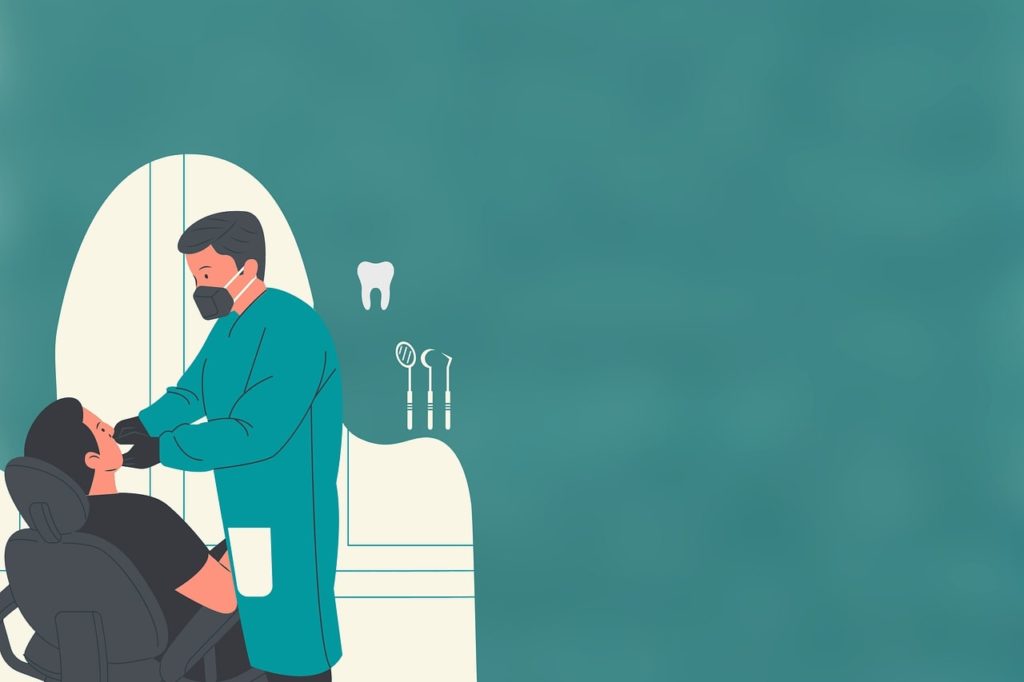There are a variety of reasons why you might need a tooth extracted. If your tooth is infected, has caused other teeth to shift, or if you have wisdom teeth that are causing problems, you may need to have it extracted. When your dentist recommends that you have a tooth extracted, it’s critical to be prepared and informed about the recovery process, which includes taking a break from smoking and tobacco use for a short period. Having a tooth extracted is never a pleasant experience for anyone. Anyone would not look forward to a few days of pain and swelling, followed by the discomfort of missing a tooth. However, tooth extraction can be particularly difficult for smokers. If your dentist recommends that you have a tooth extracted for one of several reasons and you are a regular smoker, your dentist will advise you to stop smoking for some time after the procedure.
Table of Contents
Why do you need a tooth extraction?
Getting a tooth pulled isn’t usually at the top of anyone’s priority list. Whether your wisdom teeth (third molar teeth) need to be extracted or another molar needs to be extracted, one thing is certain: tooth extractions are not enjoyable. The good news is that tooth extractions typically heal quickly. However, if you smoke, you might have some additional concerns about tooth extraction. The smoke’s heat and the chemicals it contains are harmful to your teeth, gums, and soft tissue. Smoking stains your teeth and increases your risk of developing oral disease. Despite the dangers, we understand that it is a difficult habit to break for some.

How much time does a tooth extraction take to heal
The answer to this question varies greatly from patient to patient, depending on a few key factors such as the size and location of the tooth, the patient’s dental health, and the patient’s follow-up instructions. Typically, your oral surgeon will request that you rest for at least 48 to 72 hours after the procedure to allow the treatment area to clot. A patient should be able to resume normal physical activity after that. The soft tissue will usually heal completely in 3-4 weeks.
When can I smoke after tooth extraction?
Although smoking is never recommended, dental professionals usually advise that you refrain from smoking for at least 72 hours or three days if it is necessary. After three days, it will be more difficult to disrupt the healing process because blood clots will have formed, and the healing process will have begun. A single cigarette inhalation can dislocate and burst that blood clot, resulting in a painful dry socket.
When can I smoke after wisdom tooth extraction?
Though we strongly advise patients not to smoke, we recognize that quitting is a difficult task for most smokers. If you must smoke after your wisdom teeth have been removed, we strongly advise you to wait at least 72 hours before doing so. This will allow the socket to heal more quickly and reduce the risk of complications.
When can I smoke after tooth extraction with stitches?
When a patient has a tooth extracted, the dentist will usually use dissolvable internal stitches to close the extraction site. If a patient decides to smoke, the stitches will be at risk of being broken. If anything gets in the way of the stitches, the healing process will be slowed, leading to complications. It is strongly advised to avoid using tobacco and stop smoking for at least 72 hours after tooth extraction.
The effects of smoking normally and after tooth extraction.
Smoking after the extraction procedure can lead to a variety of problems. The period following a tooth extraction is extremely delicate. In the place of an empty socket, a blood clot forms, fibroblasts (special cells that play an important role in wound healing) are produced, and the process of bone formation begins. This natural reaction can be harmed by smoking. Your blood pressure rises when you smoke, causing bleeding and dizziness. Smoking can cause throbbing and excruciating pain at the surgery site if healing is hampered. This occurs because tobacco causes immediate tissue cell damage. Smokers’ blood contains carbon monoxide, which reduces the amount of oxygen and nutrients in the wounded area’s tissues and slows the healing process. The lack of oxygen causes painful healing and increases the risk of infection. A dry socket is one of the worst things that can happen after extraction because the sucking action used while smoking can dislodge the blood clot.
Conclusion
For a variety of reasons, tooth extraction may be necessary. Patients frequently require the extraction of third molar teeth (also known as “wisdom teeth”). Regardless of the reason for the extraction, certain aftercare procedures should be followed to maintain a healthy smile. It’s best to avoid all tobacco products for at least 72 hours after tooth extraction. That is the recommended minimum amount of time. However, if you want to recover from surgery faster, it can take longer.


